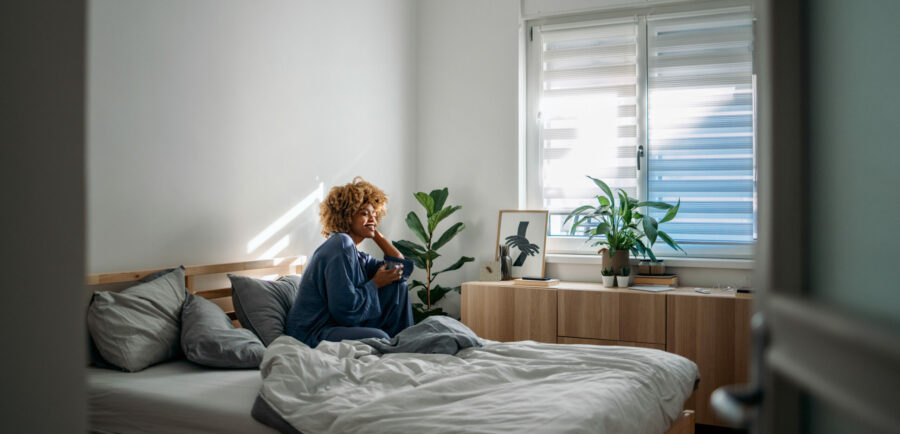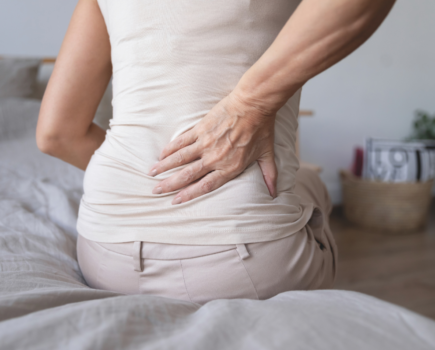- Almost a third of Brits feel more unhappy in January than any other month, nationwide survey reveals
- Blue Monday is known as one of the saddest days of the year
- Dark mornings and nights and cold weather are the most common causes reasons for our shift in mood
- Silentnight sleep experts reveal five ways sleep can help Brits battle the January blues
After the buzz and excitement of Christmas and New Year is over and we move into January, with its poor weather and lack of anything to look forward to, it’s natural to feel the January blues.
And you’re not alone if you feel like this. According to a study by the sleep brand Silentnight, three in ten Brits (30%) are generally unhappier in January than the rest of the year.
Research found one in five (20%) UK adults suffer from Blue Monday symptoms, including tiredness, lethargy, lack of motivation, and feeling sad.
To help Brits battle the blues, Silentnight’s sleep experts have revealed five top tips to offset new year negativity through the power of sleep, from boosting brain power to improving your immune system. According to the data, the dark mornings and nights are largely responsible for this shift in mood, (14%), as well as cold weather (14%), and post-Christmas and new year blues (11%).
To combat low mood at the start of the year, many people are resorting to spending more time outside and doing exercise, as well as spending time with family and friends. If you’re struggling to shake the January blues and don’t know how to boost your mood, sleep may just be the answer.
Hannah Shore, Sleep Expert at Silentnight, said: “A good night’s sleep has a restorative power, helping to lift your mood and leave you less susceptible to the impact of Blue Monday.
“Sleep affects us both physically and mentally, so when we have insufficient, poor quality sleep – less than the recommended 7-9 hours for adults – we will really feel the consequences.”
Anyone with ongoing concerns, whether prolonged periods of unhappiness or persisting sleep problems, should seek professional help from their GP or a helpline such as CALM.

HANNAH’S FIVE TOP TIPS
- GIVE YOUR BRAIN A BOOST OF POWER
There’s no denying that January can be stressful, with many people returning to work and facing new year stresses that were shelved before the holidays. By getting more sleep, you’ll give your brain enhanced power to tackle these stressful scenarios. Deep sleep, or slow wave sleep, results in our bodies release growth and repair hormones – helping restore the brain. Lighter sleep, like REM, allows the brain to recover. This is how memory consolidation, learning and emotional processing is achieved. Sleep deprivation, on the other hand, interferes with the hippocampus – the part of the brain that’s responsible for processing memories – reducing your ability to store and recall information. - DON’T LET NEGATIVE EMOTIONS TAKE CONTROL
Your brain needs sleep to process emotions, so you can feel more balanced and react positively. When running on little sleep, you’re more likely to feel grumpy and irritable, which can result in overreactions. If you are stressed you may find it more difficult to fall asleep, due to the release of stress hormones that keep us awake. While in our system, these hormones prevent other ones that promote sleep from being produced. Calm down before bedtime with a reliable routine, meditation or calming music. - TAKE CARE OF YOUR IMMUNE SYSTEM
Good sleep provides essential support to the immune system, helping you fight off illnesses (including the dreaded winter cold) and protecting your body from future health problems. During sleep, your immune system releases proteins called cytokines, which help to strengthen adaptive immunity – necessary for fighting sickness. When you’re under the weather, it’s important to give your body the time it needs to rest and repair. - FEEL FITTER AND MAINTAIN YOUR STRENGTH
If your new year’s resolution is to get fit in 2025, you may be surprised to hear that sleep could be the secret ingredient to success. Deep sleep manages growth and repair hormones that are used by the body to rebuild muscle tissue, enabling you to recover quicker from those fitness sessions. - MAINTAIN A HEALTHY DIET
A lack of sleep can result in us not having enough energy to get through the day, let alone maintain a new year resolution to eat healthily. This lethargy can lead to us reaching for high energy food to get a quick fix. This has been proven by studies showing people who have a reduction in sleep have a higher chance of developing food-related problems such as obesity and type 2 diabetes.
For more sleep advice, visit the Silentnight Sleep Blog: https://www.silentnight.co.uk/blog








